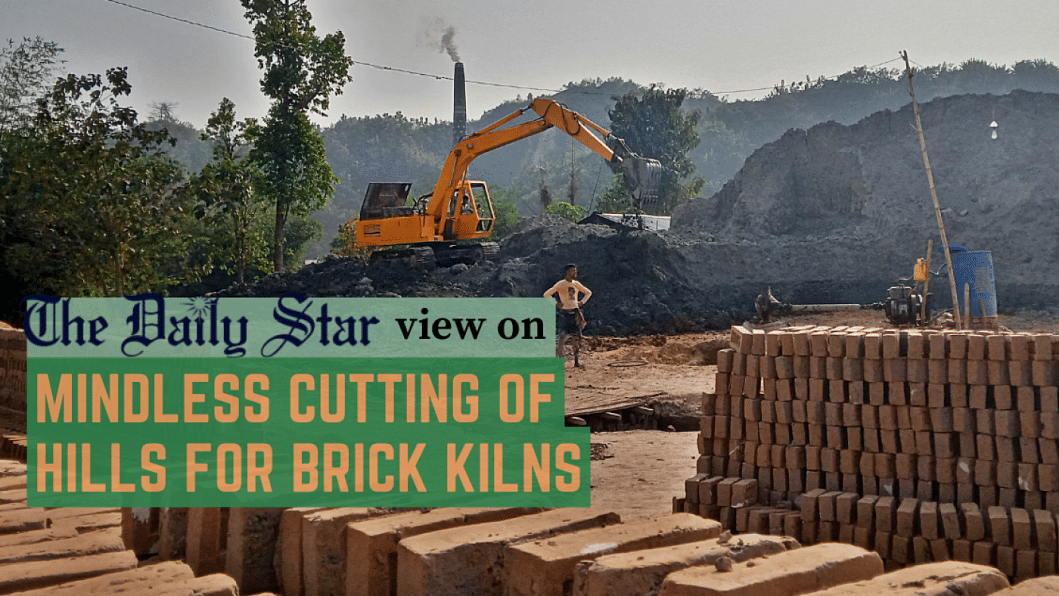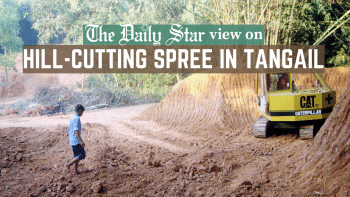Brick kiln for hills? Not really a choice

We need bricks to build and trees to breathe. We need development to ensure our progress as a nation, just as we need nature to ensure our survival as a species. Can there be a way for a seamless integration of these two needs? That, for a development-hungry Bangladesh, is a question that should be addressed urgently. What is beyond question, however, is that if it comes down to a choice between development and nature, it's not a choice, really. Nature should, and eventually will, always get the upper hand.
The reason we feel obligated to repeat this obvious truth is a front-page photo of The Daily Star that captures the pitfalls of our questionable development policy that allows for mindless destruction of nature. In the picture, you can see hills and trees being razed to make way for a brick kiln at the Lama upazila of Bandarban. You can also see rows of freshly baked bricks in the foreground, and a furnace emitting toxic fumes in the distance – a reminder that much has already been lost. These brick kilns are mostly responsible for the debilitating air pollution in the country. But more to the point, demolition of hills, be it on private land or on land owned by the government, is a punishable offence if done without the approval of the authorities concerned.
While the provision of such approvals is itself questionable, what is more worrying is that pictures of brick kilns destroying nature or polluting the environment have become quite common over the years. The drive to modernise brick kilns and make them environment-friendly is evidently not getting enough traction. Part of the reason for that is the involvement of politically connected businessmen. We have recently seen how ruthless they can be when, in late December, a journalist was brutalised after he sought to collect information on illegal brick kilns at the Rangunia upazila of Chattogram. He was held by a local UP member at gunpoint, kept hostage for over an hour, and beaten repeatedly.
This is just an example of the length to which brick kiln owners can go to protect their interests, aided in no small part by the complicity or lack of response of the officials at the department of environment. As a 2021 study by Stanford University in the USA has shown, more than three-fourths of brick kilns in Bangladesh were illegally constructed within 1 kilometre of a school. These not only pollute the air and hurt local farmers, but also reduce life expectancy in general.
We must ask, is the unusually high demand for bricks – and development – making it impossible to control the proliferation of brick kilns? The authorities must take a critical look at their present development policy to address this issue. We need strong political will and a national policy to ensure sustainable, environment-friendly development in the country. But right now, the priority is to stop all illegal brick kilns, modernise this industry, and make sure those operating legally follow environmental rules at all times. The hills must be protected at any cost.

 For all latest news, follow The Daily Star's Google News channel.
For all latest news, follow The Daily Star's Google News channel. 







Comments